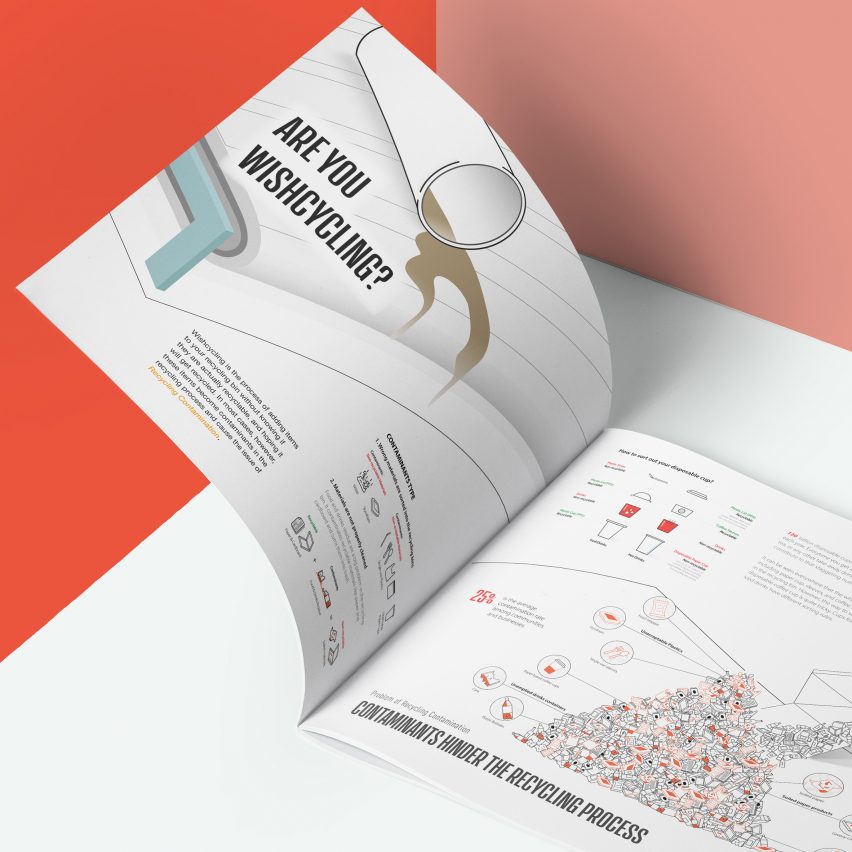
Design graduates from Boston's Northeastern University present thesis projects including visualisations of traditional Indian dance moves and augmented-reality representations of taste in this Virtual Design Festival school show.
The nine students hail from Northeastern's MFA Experience Design and MFA Information Design and Visualisation programmes, based at the university's College of Arts, Media and Design (CAMD).
MFA Experience Design and MFA Information Design and Visualisation, Northeastern University
University: Northeastern University
Course: MFA Experience Design and MFA Information Design and Visualisation
Tutor: Professor Paolo Ciuccarelli
Course statement:
"Northeastern University students in the College of Arts, Media and Design's MFA Information Design and Visualisation and MFA Experience Design programmes undertake a thesis course, which offers them support in developing and producing the written component of a design thesis.
"This integrates and applies their accumulated knowledge as well as encouraging student participation within a practice and research community consisting of classmates, advisors and external professionals.
"The full 2020 MFA thesis show can be found on the Northeastern website."
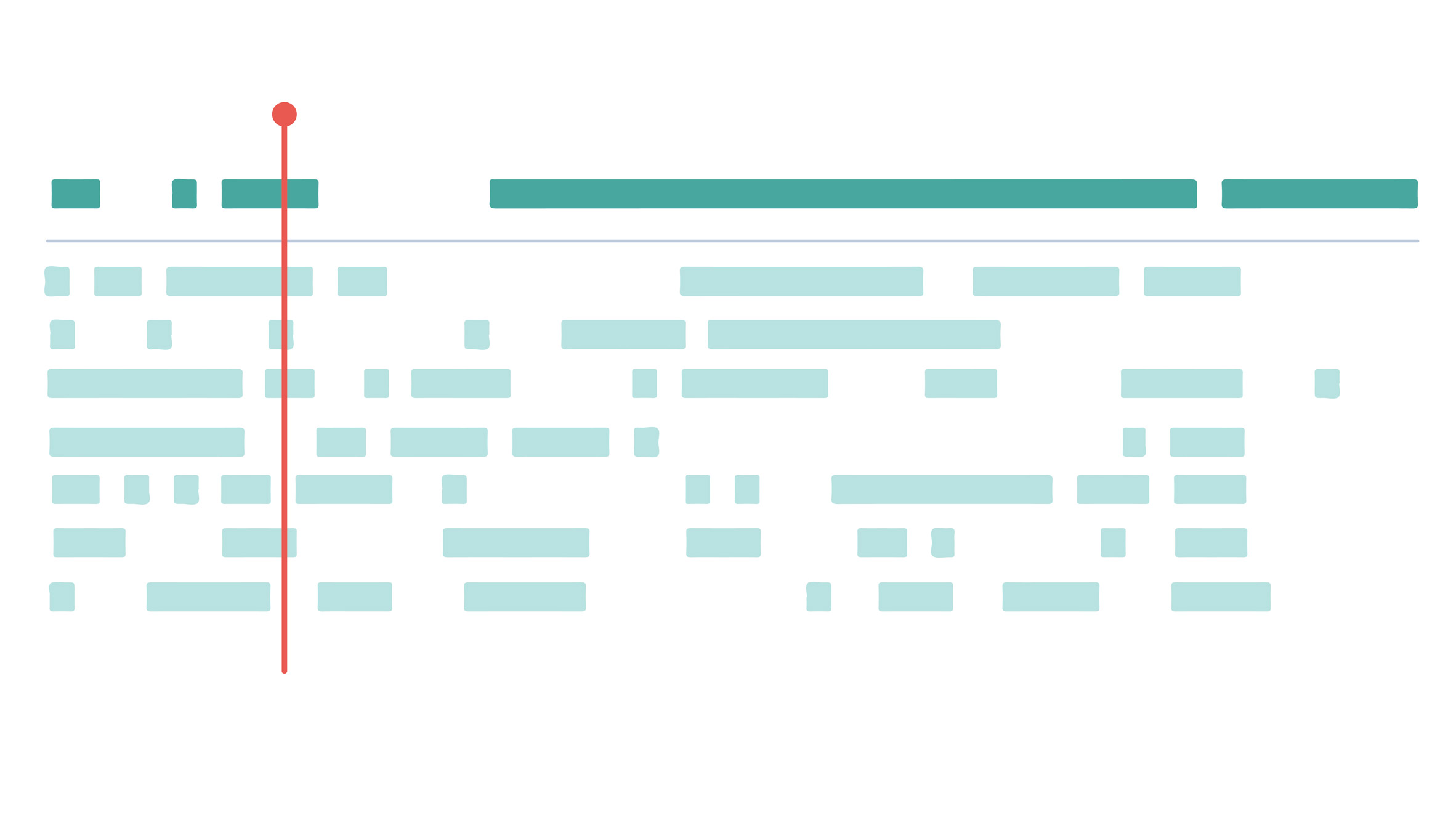
Visualising Group Therapy: Designing a Tool to Visualise Conversations and Improve Therapist Skills by Libby Thomas
"Can data visualisation help group therapists provide better therapy? In recent years, data collection has become integral to the personal and professional lives of millions around the world. Yet despite the increase in available technology and data, the process of training and supervising group psychotherapists has scarcely changed in fifty years.
"Medical charts and visualisations have historically focused on quantitative data. This thesis explores an intriguing new possibility for data visualisation in mental health care: using transcript data to visualise conversations in group therapy sessions, and ultimately using these insights to help therapists and supervisors provide better care."
Project website: northeastern.edu/mfashow/libby
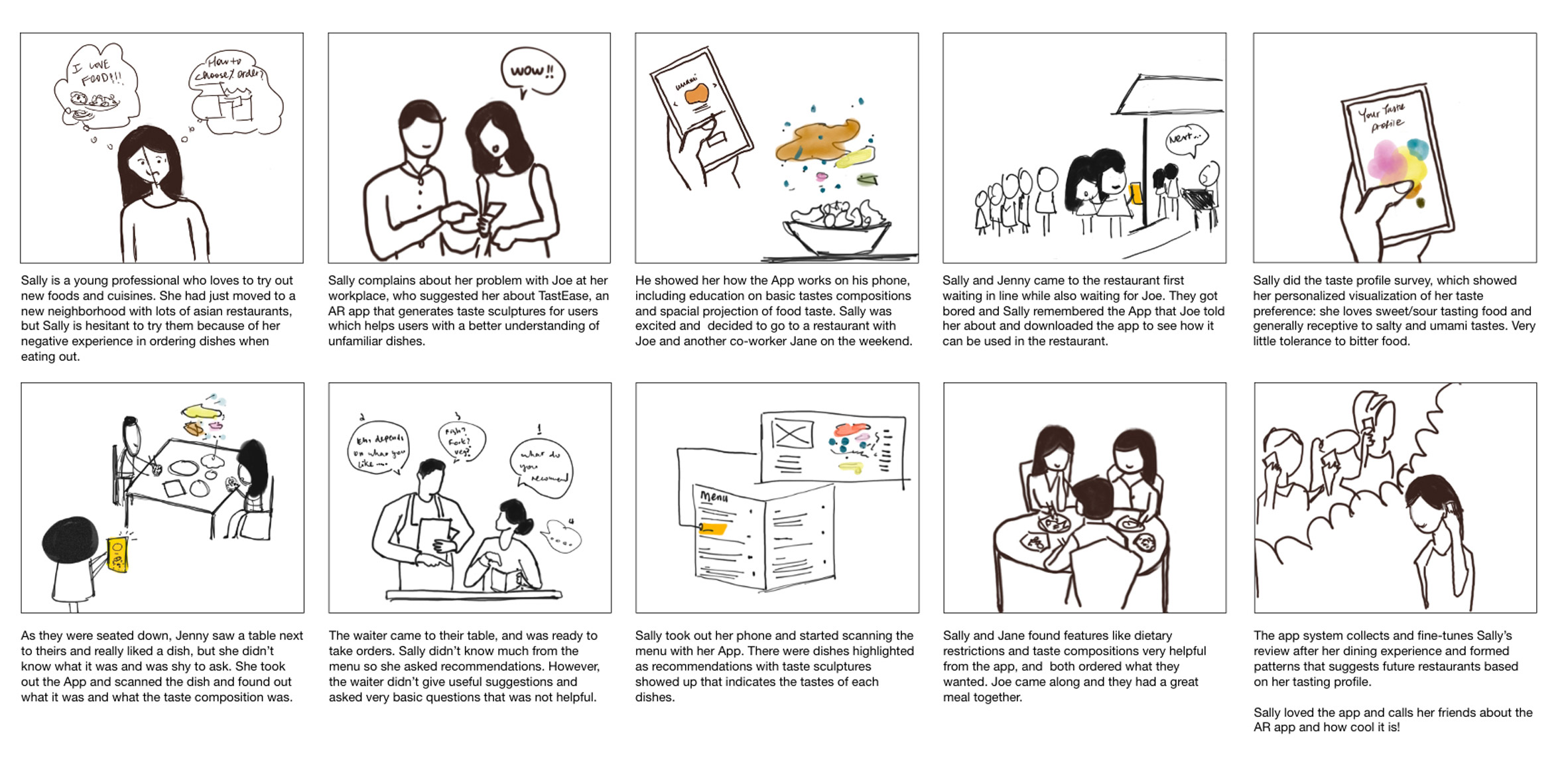
Taste in Translation: Decoding sensory information for augmented dining experiences by Anni Xu
"Human senses play an integral role in emotional processing. But taste is a sense that's hard to visualise due to its subjective and abstract nature. The lack of sensory information about food's taste, especially on restaurant menus, can make it difficult for people to imagine how unfamiliar dishes taste.
"This project explores ways of communicating sensory information from a human-centred perspective using augmented reality (AR). It uses a visual system to represent the five basic tastes, which was developed by looking at existing examples of taste visualisations and conducting experiments. The visualisations are projected through a mobile AR app where users scan a menu or dish for insights."
Project website: northeastern.edu/mfashow/anni
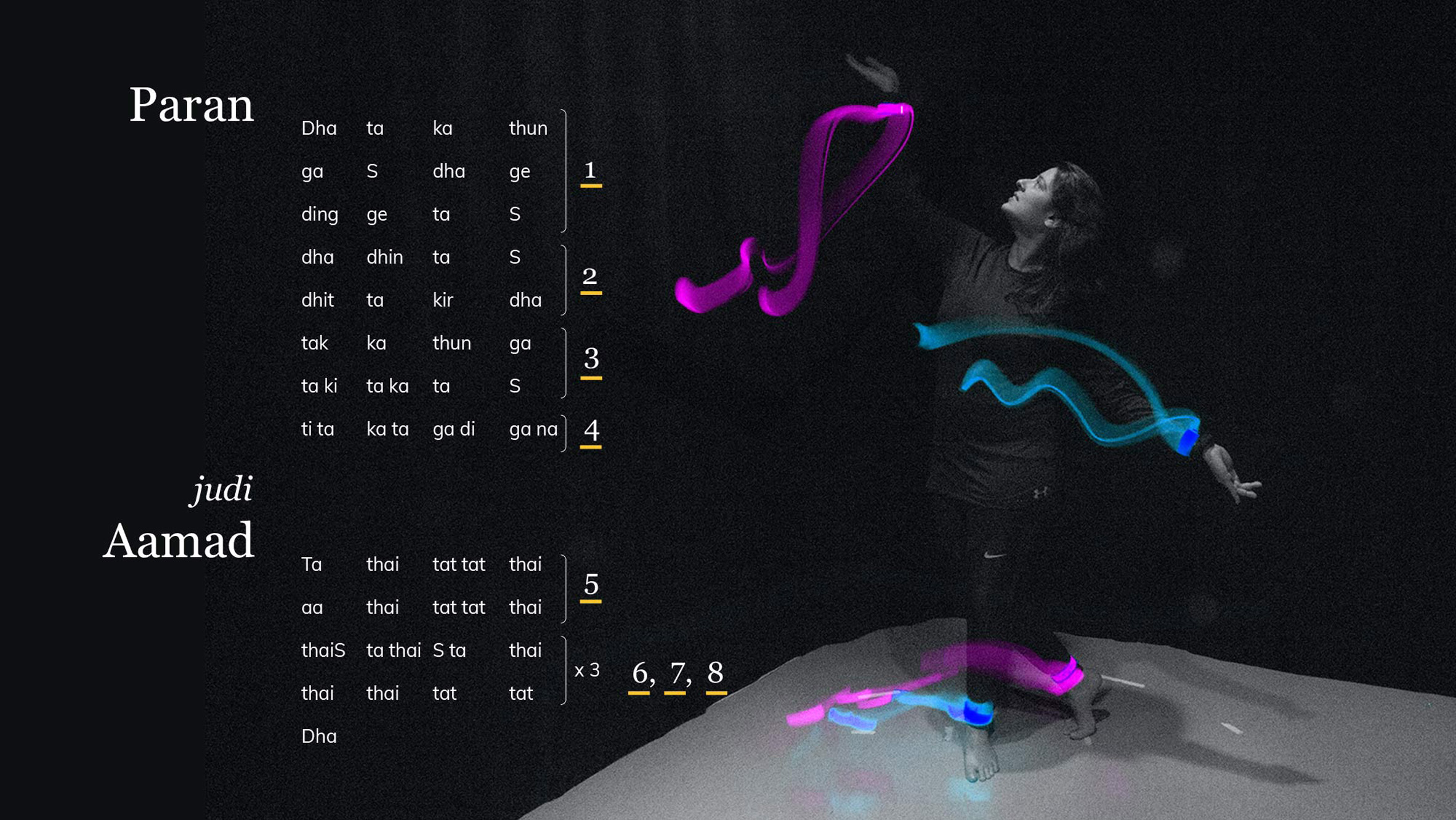
A Dancer's Trace: Visualising Movement in the Indian Classical Dance of Kathak by Arushi Singh
"This project translates the intricate movements in the Indian classical dance of Kathak into abstract, expressive visualisations using non-traditional methods of capturing movement.
"Indian classical dance has been used to communicate spiritual ideas, stories and values since as far back as 400BCE. These performances are a combination of facial expressions, well-structured movements, compelling narratives and accompanying musicals to form a unique audience experience.
"Kathak dancers leave traces of their performance in the environment after they leave. Capturing these traces encourages dance enthusiasts and curious audiences to take a more intimate look at the complex movements in these dance performances."
Project website: northeastern.edu/mfashow/arushi
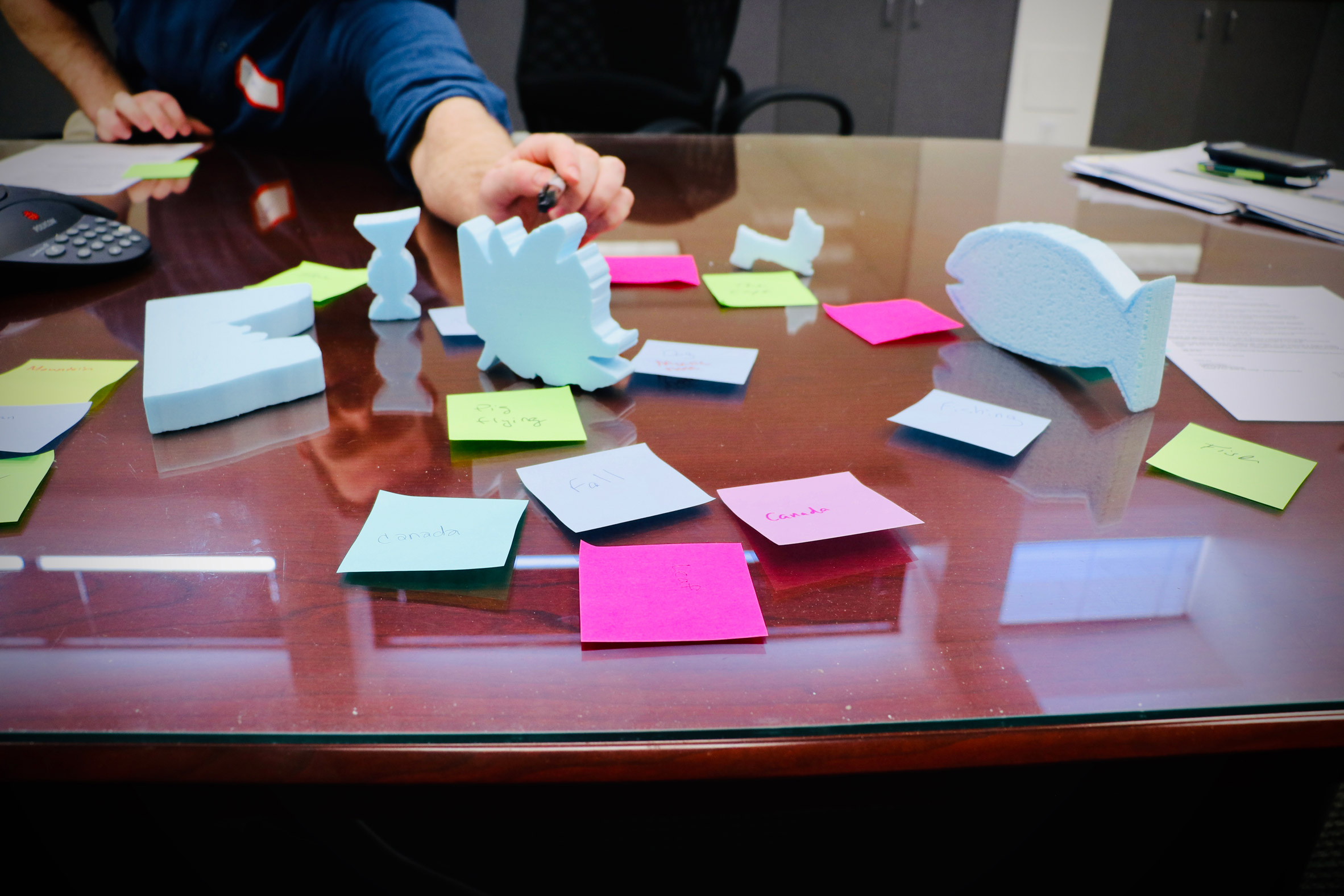
Facilitating Collaboration and Trust in Multicultural Teams: Design for Intercultural Conversations Through Evocative Objects by Estefania Ciliotta Chehade
"Today's workplace dynamic is changing due to globalisation and technological advancements. Understanding and embracing diversity is imperative for fostering collaboration and trust, so we have to find ways to help individuals embrace differences in a comfortable way while developing intercultural skills.
"This project proposes new strategies for productive co-working in cross-cultural teams. It exposes and develops an understanding of the challenges faced on multicultural teams and designs a set of interventions, particularly through evocative objects, conversations, and workshops. The ultimate aim is to promote awareness, reflection, and respect."
Project website: northeastern.edu/mfashow/estefania
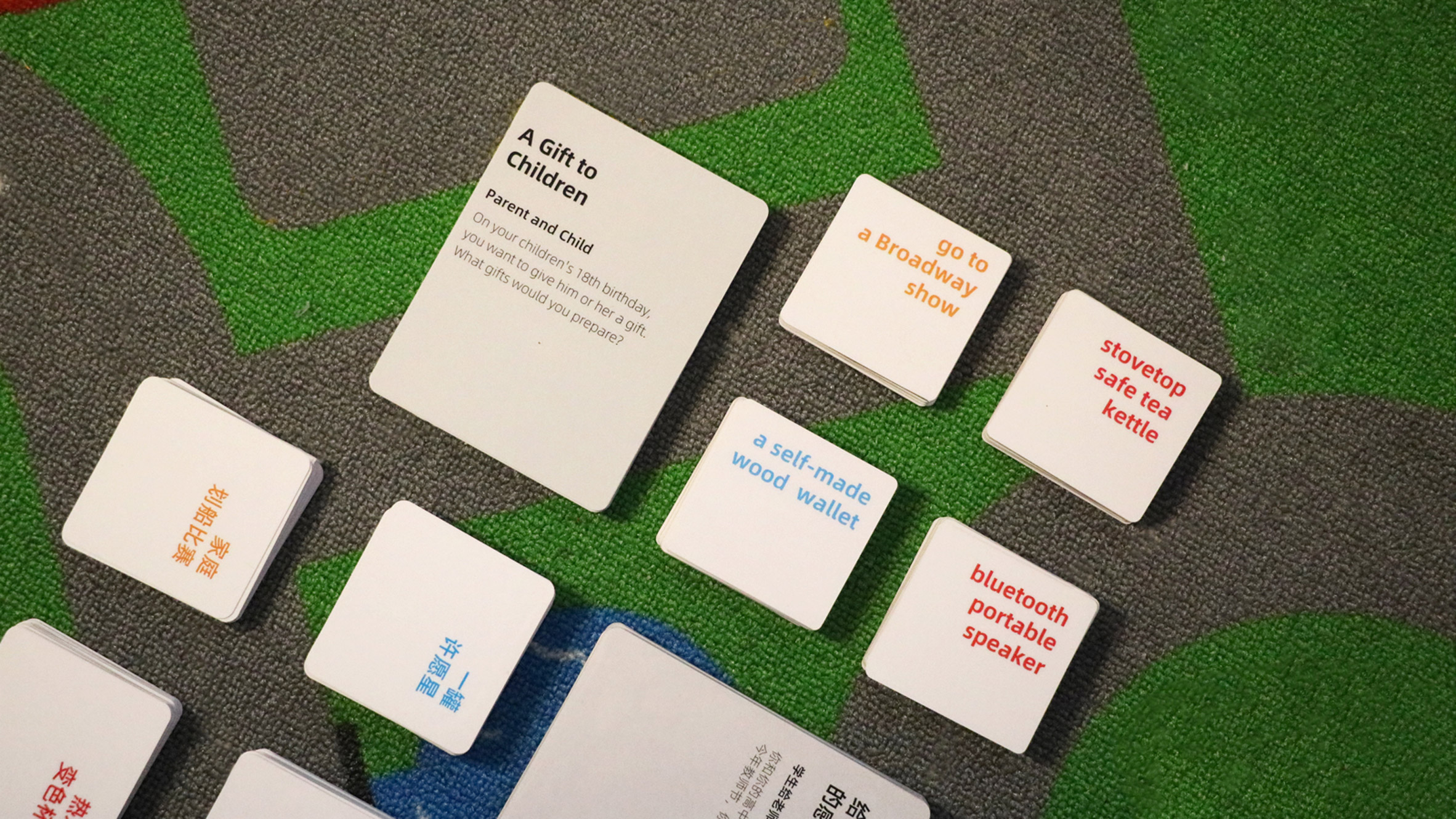
Enriching Gifts: Participatory Design Research to Understand Human Relationships by Houjiang Liu
"Gifts are emotional objects embedded with feelings, as well as reciprocal objects that invoke social interactions. In a civilised culture, they not only represent the aesthetic value of their designed appearance but also create an experience and a routine practice in cultural identity.
"The purpose of the Enriching Gifts project is to analyse gift culture and understand its pluralistic and individual values and symbolic social meanings. The project makes use of participatory design in the form of a card game, to analyse gifts and understand their values and meanings."
Project website: northeastern.edu/mfashow/houjiang
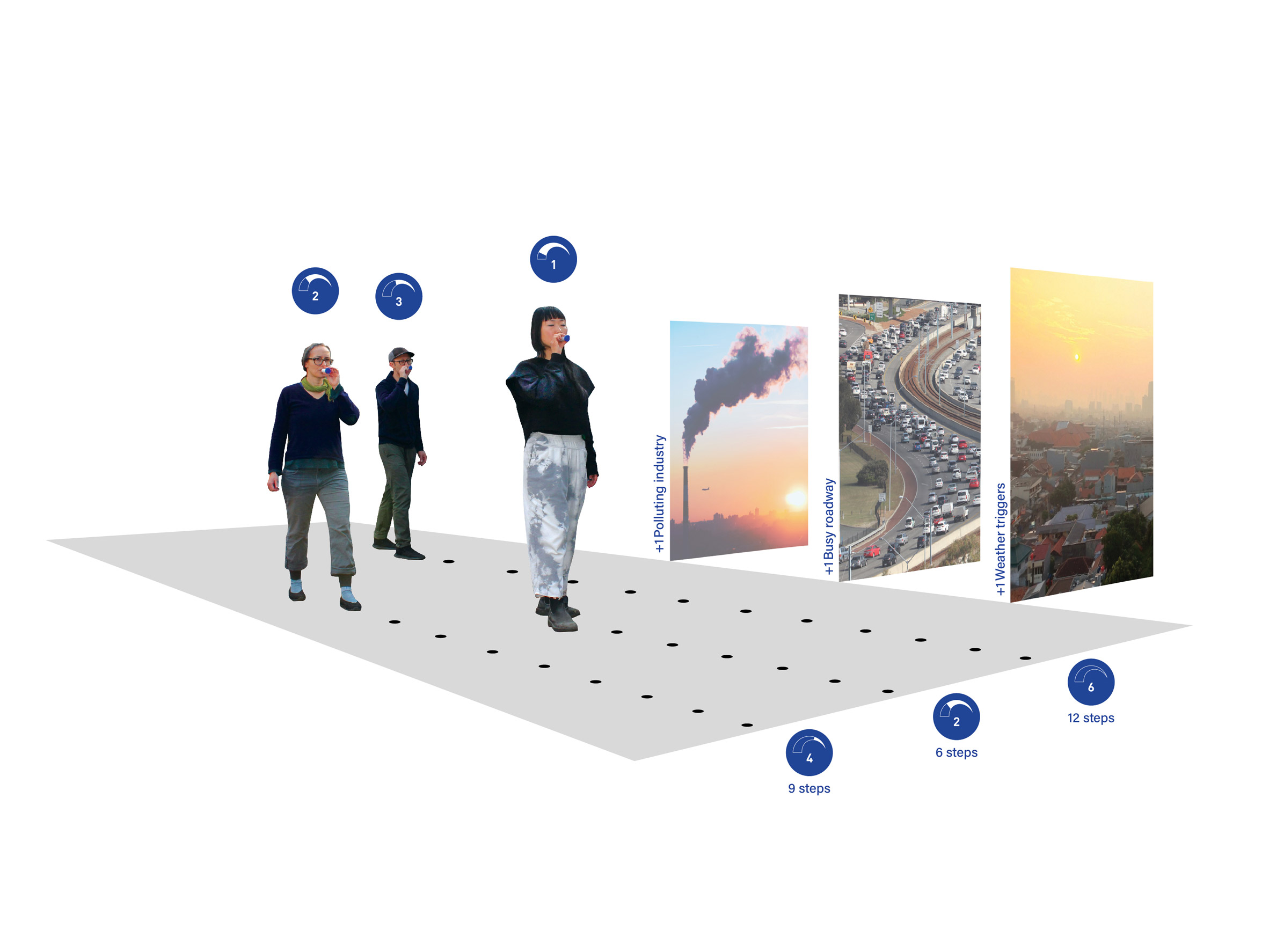
Breathing Injustice: Redesigning Asthma as a Collective Illness Experience by Todd Linker
"Who should be able to breathe? The Principles of Environmental Justice were first drafted in 1991 and proclaimed clean air, land, water and food to be fundamental rights. Yet more than one in ten people living in the United States have asthma, a respiratory illness that is aggravated by environmental conditions including air pollution.
"The burden of asthma is unequally distributed across geographies characterised by race, ethnicity and economic status. This project explores ways that design might help communities facing an increased burden of illness from environmental factors to form a collective understanding of illness in order to advocate for change together. "
Project website: northeastern.edu/mfashow/todd
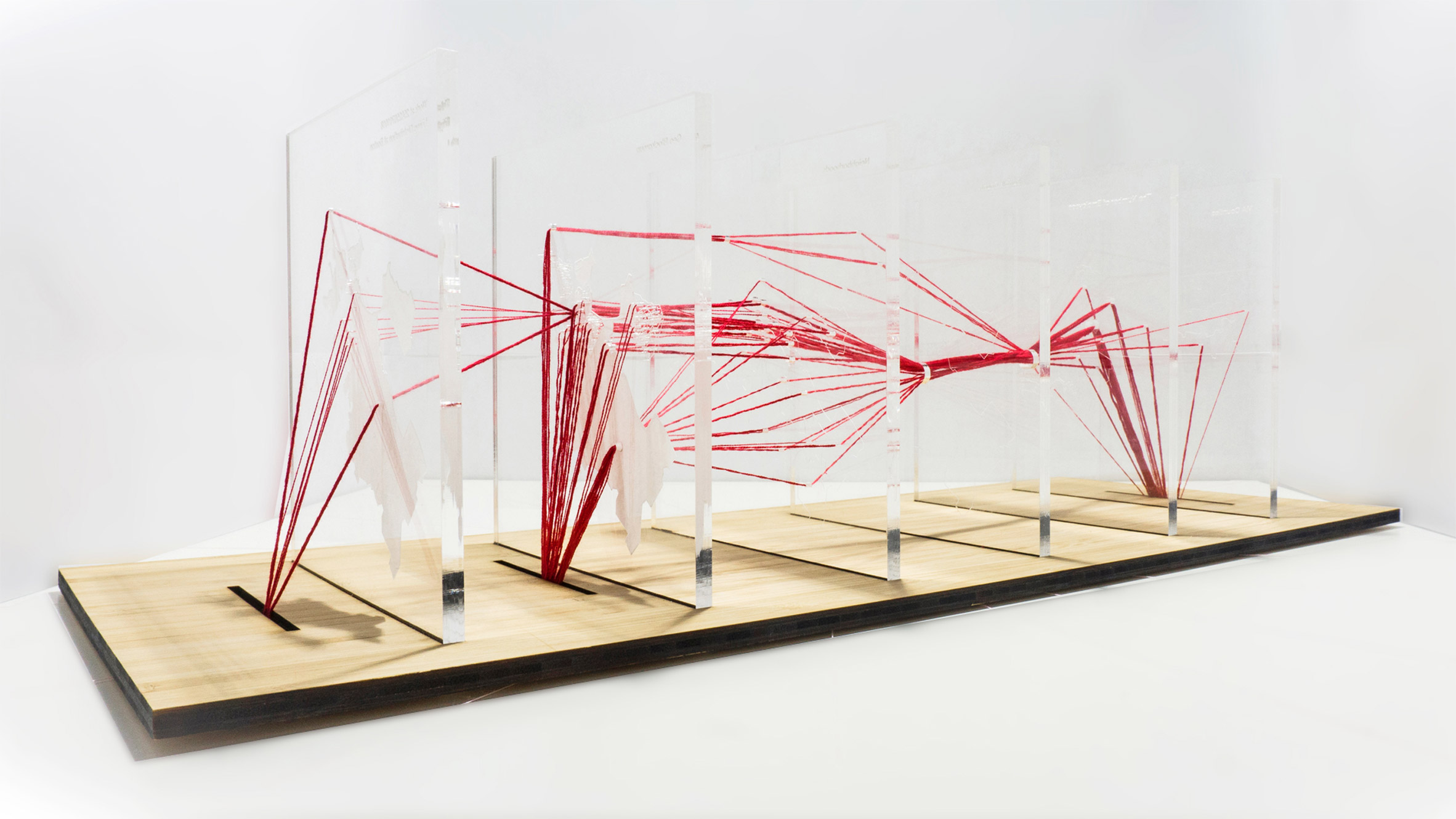
Mobility Patterns of Boston Workers: Visualising Origin to Destination Flows by Yinan Dong
"The Origin-Destination (O-D) pattern is a fundamental concept in transport, summarising people and vehicle movements across geographical regions. Visualising Boston employees' home and workflow is one way to understand Boston their mobility patterns.
"However, visualising O-D flow is always a challenge in terms of visual clarity when representing multi-dimensional data in a single plot. This thesis explores design approaches for O-D flow, in order to efficiently encode and communicate this spatial data.
"One of the methods discussed throughout this thesis is a 3D tree-node diagram, which analyses the workers' flow in various spatial granularities."
Project website: northeastern.edu/mfashow/yinan
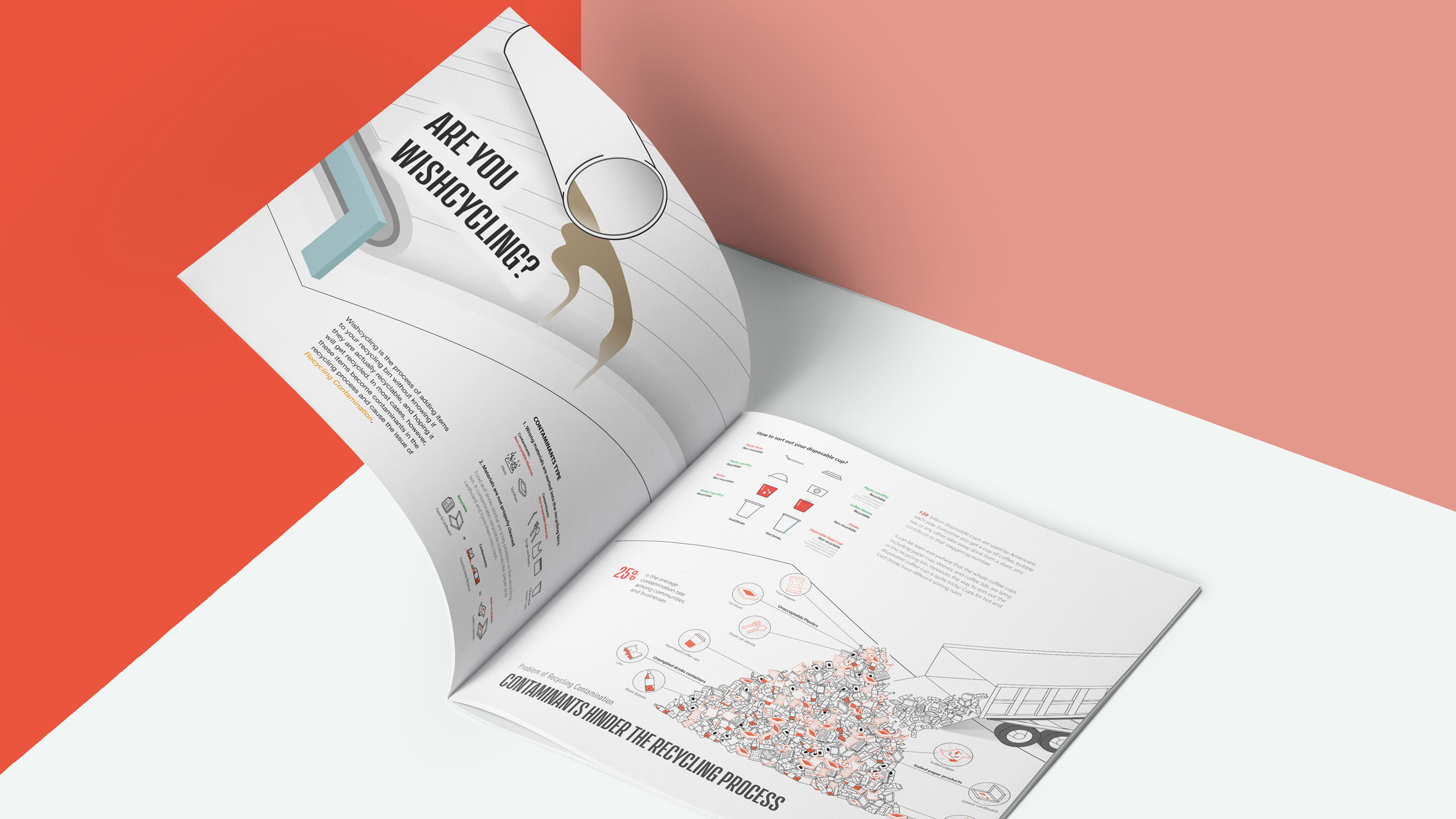
Designing For Persuasion: Rhetoric in Information Design to Communicate on Social Problems by Yuan Hua
"This thesis emphasises the cognitive changes that information design can facilitate through persuasion in response to social problems. It attempts to perform an analysis of information design centring on persuasion.
"First, it proposes a theoretical framework that models the relationships among information artefacts, audiences and designers from a communicative perspective. Then, it articulates the persuasive stages of information design — informing, nudging, and reasoning.
"Additionally, the thesis addresses the rhetorical aspect of information design by exploring concepts and practices from existing rhetorical studies. It presents the rhetorical taxonomy for information design and applies the taxonomy to the issue of recycling contamination."
Project website: northeastern.edu/mfashow/yuan
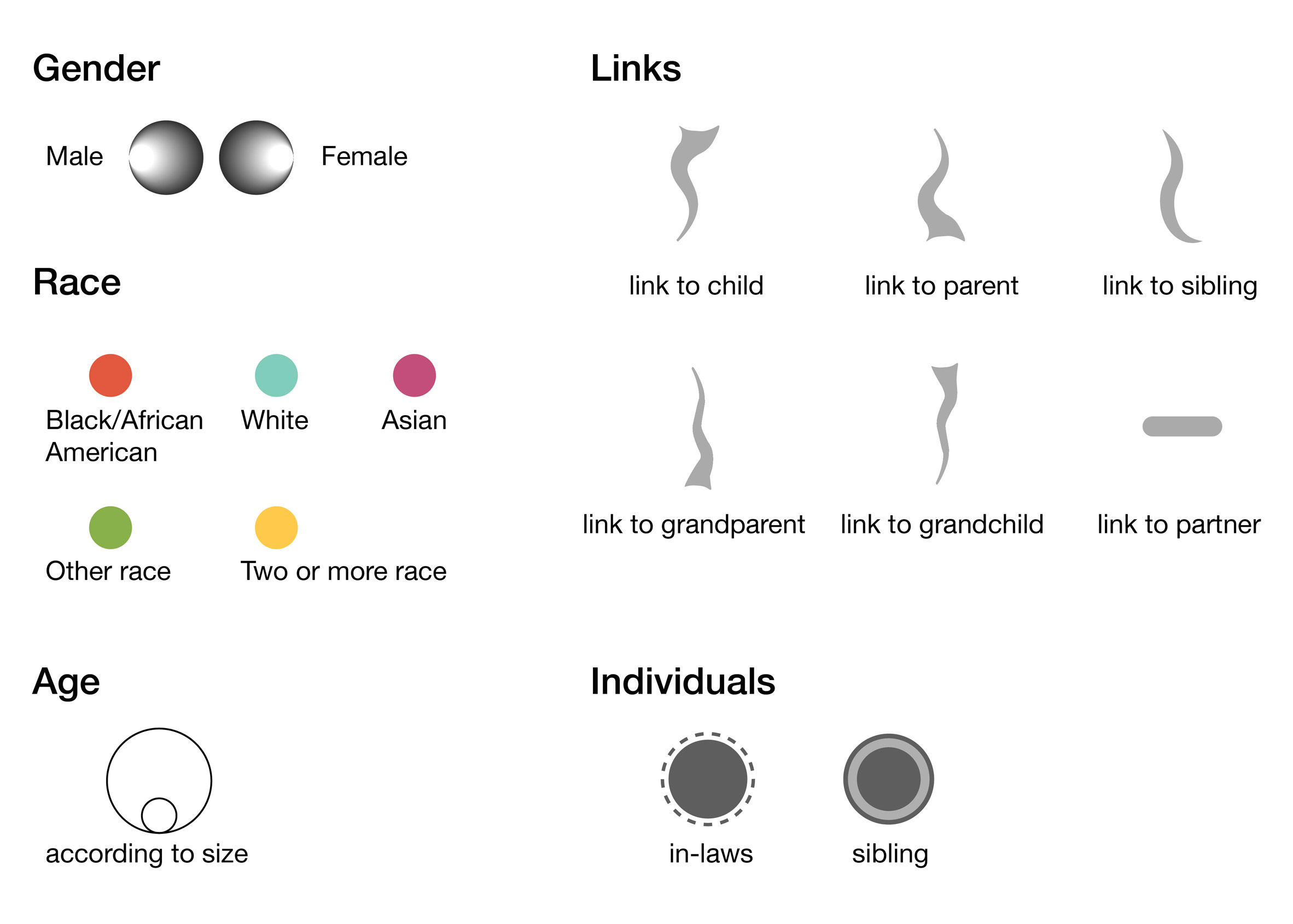
Family Portrait: Visual Atlas of Households Census by Yuqing Liu
"How have family compositions changed over time? How different can families be in many ways? Census data can be a resource for designers, whose work enables public access to unexpected or unknown information that helps people understand themselves.
"This project examines several variables in census data, including race, age and gender for people living in Boston from 1860. This data is visualised to show different types of families in Boston, reveal how people connect and indicate less common family types that many people may not have been aware of before."
Project website: northeastern.edu/mfashow/yuqing
Virtual Design Festival's student and schools initiative offers a simple and affordable platform for student and graduate groups to present their work during the coronavirus pandemic. Click here for more details.
The post Northeastern University showcases nine graduate designs that bring data to life appeared first on Dezeen.
https://ift.tt/2ACGBB3
twitter.com/3novicesindia
No comments:
Post a Comment